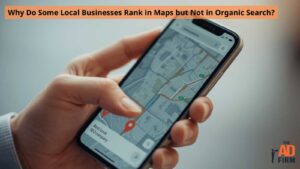With their capabilities, ChatGPT and artificial intelligence (AI) are revolutionizing many aspects of business operations, including — and perhaps most importantly — customer service. Given what’s riding on keeping your customers happy, it may be time to explore the technology today.
RightNow Technologies estimates that 70% of buying experiences are based on how customers feel they are being treated. This means giving them good experiences leads to positive buying decisions, which result in profits, repeat purchases, and returning customers. Bad experiences, in contrast, turn them away and can result in negative feedback that repels future customers.
Amid this, ChatGPT and AI are helping bolster customer service efforts, resulting in customer satisfaction and higher returns on investment. If you’ve been meaning to explore this technology to achieve the same results, then follow this guide to discover how to leverage it.
The Role of ChatGPT and AI in Personalized Customer Experiences
On the internet today, personalizing experiences drives strong relationships and positive experiences between brands and customers. Feeling seen and heard motivates them to engage further and stay loyal to a brand.
However, the crux of the matter is that personalization is hard to achieve if you go analog.
As it continues supercharging personalized online experiences, it’s safe to say that it’s pushing the bar for how many of us practice customer service and experience design. standards for customer experience, enhancing efficiency and reshaping expectations for personalized service. AI-driven solutions enable you to analyze vast amounts of data in real time, delivering personalized experiences that were once the domain of face-to-face interactions.
Among the forefront technologies in this revolution is ChatGPT, an advanced AI language model developed by OpenAI. ChatGPT stands out due to its deep learning capabilities, allowing it to understand and generate human-like text based on the input it receives. This ability makes ChatGPT an invaluable tool for delivering highly personalized customer service experiences. With ChatGPT, you can automate and customize interactions at scale, ensuring that each customer receives attention tailored to their specific needs and preferences.
Advance Your Digital Reach with The Ad Firm
- Local SEO: Dominate your local market and attract more customers with targeted local SEO strategies.
- PPC: Use precise PPC management to draw high-quality traffic and boost your leads effectively.
- Content Marketing: Create and distribute valuable, relevant content that captivates your audience and builds authority.
For businesses like an SEO company, integrating AI tools like ChatGPT can streamline interactions, providing a consistent and personalized customer experience that meets the unique needs of each client.
The introduction of sophisticated AI tools like ChatGPT into customer service roles is not just a trend but a shift towards more dynamic, responsive, and personalized customer engagement. As we delve deeper into the capabilities and applications of ChatGPT, it becomes clear how this technology is not just supporting existing processes but revolutionizing the way you connect with your customers.
The Importance of Personalization in Customer Experience
In today’s competitive market, personalization is a key differentiator in enhancing customer experience and driving business success. Here’s why personalization is crucial:
- Meeting Consumer Expectations: Today, you must tailor interactions with your brand to individual needs and preferences. Personalized experiences across various touchpoints, from marketing emails to customer support, are now a standard expectation rather than a luxury. This customization makes customers feel valued and understood, which is critical in building trust and loyalty.
- Increasing Customer Loyalty: Personalization significantly enhances customer satisfaction, encouraging repeat business and loyalty. Your customers are more likely to return to brands that remember their preferences and offer relevant recommendations. This not only improves the customer experience but also increases the likelihood of additional purchases.
- Driving Business Growth: Personalized customer interactions lead directly to increased business growth. By delivering targeted and relevant content and offers, you can see higher conversion rates, increased transaction sizes, and improved customer retention. Personalization strategies directly contribute to a better bottom line by making marketing and sales efforts more effective.
For those involved in SEO content creation, personalized strategies are essential to ensure that content resonates with the target audience, driving engagement and conversions.
- Enhancing Customer Engagement: Personalized experiences are more engaging. When customers receive content that is relevant to their interests and past behavior, they are more likely to engage deeply with your brand. Higher engagement levels often translate into longer session durations and more frequent interactions, offering you more opportunities to convert interest into sales.
- Informing Product and Service Development: The insights gained from personalized interactions provide valuable data that you can use to refine and enhance your offerings. This data-driven approach ensures that your products and services evolve in line with customer preferences and emerging trends, keeping your company competitive and relevant.
By leveraging technologies like ChatGPT, you can effectively implement and scale personalization efforts, ensuring every customer interaction is as relevant and engaging as possible. This not only meets but exceeds modern consumer expectations, providing a clear pathway to enhanced customer satisfaction and sustained business growth.
Streamline Your Digital Assets with The Ad Firm
- Web Development: Build and manage high-performing digital platforms that enhance your business operations.
- SEO: Leverage advanced SEO strategies to significantly improve your search engine rankings.
- PPC: Craft and execute PPC campaigns that ensure high engagement and superior ROI.
Benefits of Using ChatGPT for Personalization
ChatGPT, developed by OpenAI, is revolutionizing how you interact with your customers by providing personalized experiences at scale. Here are some key benefits of using ChatGPT for personalization:
- Understanding and Predicting Customer Needs: ChatGPT excels in analyzing and processing large volumes of customer data in real-time. This capability allows it to understand subtle patterns and preferences in customer behavior, which can be used to predict future needs. For instance, by examining past interactions, ChatGPT can determine a customer’s preferred communication style or anticipate questions they might have. This foresight enables you to proactively address concerns and meet customer needs before they are explicitly stated, enhancing the overall customer experience.
- Delivering Personalized Content and Recommendations: ChatGPT can generate highly tailored content and recommendations, making each customer interaction unique and relevant. For example, in an e-commerce setting, ChatGPT can provide product recommendations based on a customer’s browsing history and previous purchases. It can adjust its suggestions in real-time based on customer feedback during the interaction, such as altering recommendations if a customer shows interest in a different category of products.
Furthermore, ChatGPT can personalize the tone and style of its communications to match the customer’s profile. For customers who prefer concise information, it can summarize key points; for those who appreciate detailed explanations, it can elaborate extensively. Through these applications, ChatGPT not only enhances the efficiency of customer service operations but also significantly improves customer satisfaction by delivering a highly personalized service. This level of customization fosters a stronger connection between customers and your brand, contributing to increased loyalty and engagement.
Integrating ChatGPT with Existing Customer Service Platforms
Integrating ChatGPT into your existing customer service platforms can transform the efficiency and effectiveness of customer interactions. Here’s how you can effectively incorporate this AI technology:
1. Customer Support Chatbots
ChatGPT can be deployed as the intelligence behind chatbots on your website or app, providing instant responses to customer inquiries. This setup helps handle a large volume of queries without human intervention, allowing your human agents to focus on more complex issues.
Maximize Your Online Impact with The Ad Firm
- Local SEO: Capture the local market with strategic SEO techniques that drive foot traffic and online sales.
- Digital PR: Boost your brand’s image with strategic digital PR that connects and resonates with your audience.
- PPC: Implement targeted PPC campaigns that effectively convert interest into action.
2. Email Response Automation
Integrating ChatGPT with your email management system enables automated responses to common customer queries received via email. This AI can analyze the content of the email and generate personalized replies based on the customer’s history and the nature of their inquiry.
3. Social Media Management
ChatGPT can be integrated into your social media platforms to automatically respond to customer comments or direct messages. This application ensures timely and consistent interactions, which are crucial for maintaining high levels of customer satisfaction and engagement on these platforms.
Technical Considerations and Best Practices for Seamless Integration
Data Compatibility: Ensure that your existing customer data formats and structures are compatible with ChatGPT. This may require some preprocessing of data to fit the model’s requirements for optimal performance.
API Integration: Utilize the API provided by OpenAI to integrate ChatGPT into your existing systems. Ensure that your platform can handle API requests efficiently and securely, maintaining data privacy and integrity.
Performance Monitoring: Regularly monitor the performance of ChatGPT within your systems. Set up metrics to evaluate its effectiveness in handling customer interactions, such as response accuracy, user satisfaction ratings, and resolution times.
Continuous Learning and Updates: ChatGPT models should be continually trained with new data to improve their accuracy and relevance. Regular updates can include new customer interaction data, changes in product or service details, and feedback from users and customer service agents.
Human Oversight: While ChatGPT can handle many tasks independently, it’s crucial to maintain human oversight, especially for sensitive issues. Implement a system where ChatGPT escalates complex or sensitive matters to human agents seamlessly.
By following these best practices and considering the technical aspects of integration, you can ensure that ChatGPT effectively enhances your customer service capabilities. The successful integration of ChatGPT not only improves operational efficiency but also significantly boosts the overall quality of customer service, leading to better customer retention and satisfaction.
Challenges and Limitations of Using ChatGPT
While ChatGPT and similar AI technologies offer substantial benefits for personalizing customer experiences, they also come with specific challenges and limitations that you must navigate.
Enhance Your Brand Visibility with The Ad Firm
- SEO: Enhance your online presence with our advanced SEO tactics designed for long-term success.
- Content Marketing: Tell your brand’s story through compelling content that engages and retains customers.
- Web Design: Design visually appealing and user-friendly websites that stand out in your industry.
Potential Pitfalls and Limitations
Understanding Context and Nuance: One of the primary limitations of using ChatGPT is its occasional struggle with understanding complex context and nuances in communication. While it excels in handling straightforward queries, its responses can sometimes misinterpret more complex sentiments or cultural subtleties, which might lead to customer dissatisfaction.
Dependency on Data Quality: ChatGPT’s performance heavily relies on the quality and breadth of the data it is trained on. If the underlying data is biased or limited, the AI may generate responses that are inappropriate or not truly reflective of your business’s values or customer needs.
Privacy Concerns: Utilizing AI tools that process vast amounts of personal customer data raises significant privacy concerns. Mismanagement of this data could lead to breaches of privacy regulations, damaging trust and exposing your business to legal repercussions.
Mitigating Challenges
Enhancing AI Understanding: To improve ChatGPT’s handling of complex interactions, continuously update and train the model on a diverse set of data that includes various customer scenarios, dialects, and slang. This training helps the AI better grasp the nuances of human language and improves its responsiveness to a wider range of queries.
Ensuring Data Integrity: Implement robust data governance practices to ensure the data used for training ChatGPT is accurate, representative, and free from biases. Regular audits and updates of the training data can help maintain the AI’s relevance and accuracy over time.
Safeguarding Privacy: Adhere strictly to data protection laws such as GDPR or CCPA when implementing AI solutions like ChatGPT. This includes securing customer consent where necessary, anonymizing data used in training, and ensuring that data handling procedures are transparent and secure.
Human-AI Collaboration: Establish a system where AI and human agents collaborate efficiently. Use ChatGPT for handling routine queries and set clear protocols for escalating complex or sensitive issues to human agents. This approach not only ensures customer satisfaction but also helps in continuously training the AI based on the insights gathered from human oversight.
By understanding and addressing these challenges, you can more effectively integrate ChatGPT into your customer interaction strategies, leveraging its strengths while mitigating potential downsides. This balanced approach ensures that AI tools enhance, rather than hinder, the customer experience.
Transform Your Online Strategy with The Ad Firm
- SEO: Achieve top search rankings and outpace your competitors with our expert SEO techniques.
- Paid Ads: Leverage cutting-edge ad strategies to maximize return on investment and increase conversions.
- Digital PR: Manage your brand’s reputation and enhance public perception with our tailored digital PR services.
Developing a Strategy for AI-Powered Personalization
Incorporating AI like ChatGPT into your customer experience strategy can significantly enhance interaction and personalization. To effectively deploy such technology, you need a well-thought-out strategy that not only integrates seamlessly but also respects privacy and maximizes return on investment.
Here are steps and considerations for developing a robust AI-powered personalization strategy:
- Identify Objectives: Determine what you want to achieve with AI personalization. Whether it’s improving response times, increasing customer satisfaction, or boosting conversion rates, having clear objectives will guide the integration process.
- Select the Right Tools: Choose AI tools that align with your business needs. For ChatGPT, evaluate how its capabilities can address your specific objectives, such as providing 24/7 customer support or personalized product recommendations.
- Integrate with Existing Systems: Seamlessly integrate ChatGPT into your current customer relationship management (CRM) and data analytics systems. This integration allows ChatGPT to leverage existing customer data to deliver personalized experiences effectively.
- Train the Model: Customize and train ChatGPT using historical interaction data, product information, and customer feedback to ensure that its responses are aligned with your company’s tone and meet your customers’ expectations.
- Pilot and Iterate: Start with a pilot project to see how ChatGPT performs in a controlled environment. Use the insights gathered to refine AI behaviors and expand its usage across different customer touchpoints.
Key Factors to Consider
Data Privacy: Ensure compliance with data protection regulations. Be transparent with customers about how their data is being used to personalize their experiences and secure their consent where necessary. Implementing strong data encryption and regular security audits will help protect sensitive customer information.
Customer Engagement Metrics: Monitor how AI personalization affects key metrics such as customer satisfaction scores, engagement rates, and support ticket resolution times. These metrics will provide valuable feedback on the effectiveness of ChatGPT and highlight areas for improvement.
ROI Measurement: Evaluate the return on investment by analyzing the cost savings from automating responses and the increase in revenue from improved customer experiences. For a digital marketing company, especially e-commerce business, this analysis is crucial to understanding how personalized interactions can lead to higher engagement rates, better conversion metrics, and ultimately, more effective marketing campaigns. Consider both direct financial gains and intangible benefits like enhanced customer loyalty.
Elevate Your Market Presence with The Ad Firm
- SEO: Boost your search engine visibility and supercharge your sales figures with strategic SEO.
- PPC: Target and capture your ideal customers through highly optimized PPC campaigns.
- Social Media: Engage effectively with your audience and build brand loyalty through targeted social media strategies.
Ongoing Optimization: AI personalization is not a set-it-and-forget-it solution. Regularly update the AI model based on new customer data, evolving business goals, and technological advancements. Continuous optimization will ensure that the personalization remains relevant and effective over time.
Developing a strategy for AI-powered personalization involves careful planning and execution, but when done correctly, it can transform your customer interactions and set your business apart from the competition. By following these steps and considering the key factors outlined, you can successfully integrate ChatGPT and other AI tools to create personalized, engaging, and satisfying customer experiences.
Final Thoughts
The transformative potential of ChatGPT and other AI technologies in personalizing customer experiences is immense and continually evolving. These advanced tools enable you to engage with customers in more meaningful ways, providing tailored interactions that can significantly enhance satisfaction and loyalty. By understanding and predicting customer preferences, AI can deliver not just customized content but also a seamless customer journey that feels uniquely personal.
To remain competitive in an increasingly digital marketplace, consider how AI can be strategically used not only to meet current customer expectations but also to anticipate future needs. The proactive integration of AI like ChatGPT into customer experience strategies represents a forward-thinking approach that can yield substantial benefits in terms of customer engagement and business growth.
For those interested in exploring the capabilities of AI to transform customer interactions, there are numerous resources available. Whether you are just starting your journey in AI or looking to enhance existing implementations, expert consultations can provide tailored guidance suited to your specific business needs. For more information on how to leverage AI solutions effectively, or to speak with an expert about developing a customized AI strategy, please visit our website or contact us directly at [insert contact information or link here. Embrace the future of customer interaction by integrating ChatGPT and see the difference it can make in delivering exceptional customer experiences.




